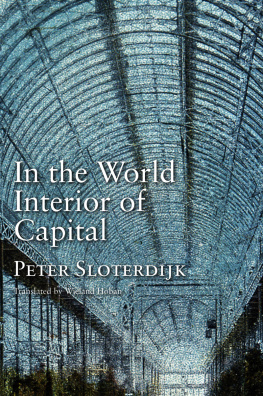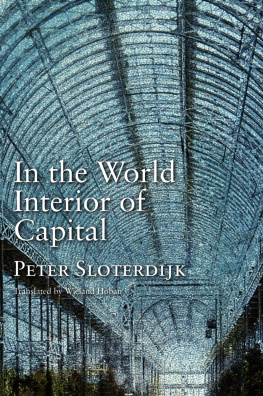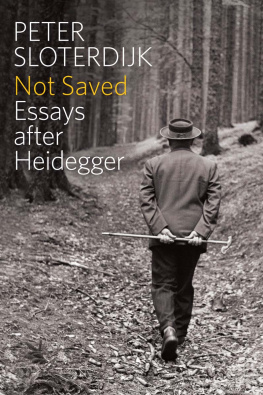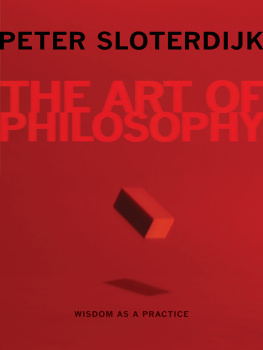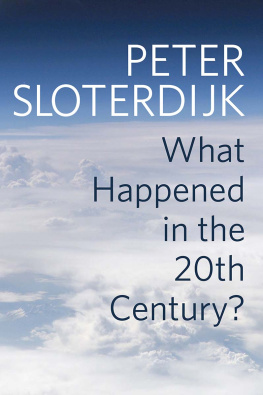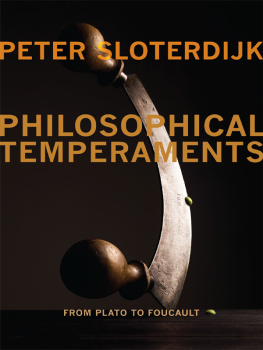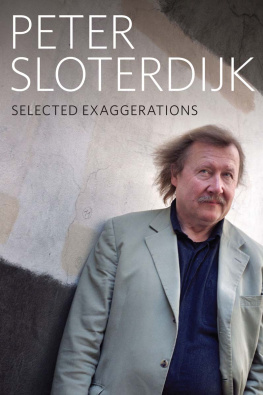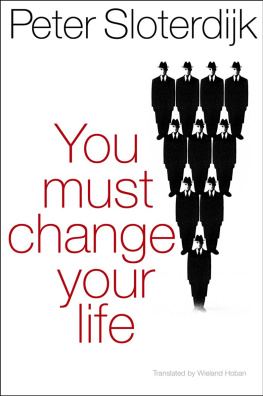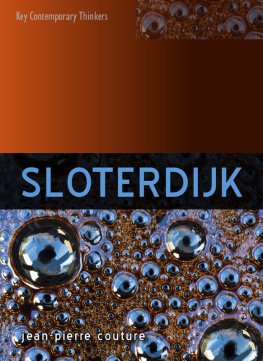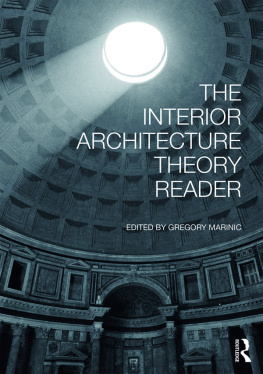Peter Sloterdijk - In the World Interior of Capital: Towards a Philosophical Theory of Globalization
Here you can read online Peter Sloterdijk - In the World Interior of Capital: Towards a Philosophical Theory of Globalization full text of the book (entire story) in english for free. Download pdf and epub, get meaning, cover and reviews about this ebook. year: 2014, publisher: Polity, genre: Religion. Description of the work, (preface) as well as reviews are available. Best literature library LitArk.com created for fans of good reading and offers a wide selection of genres:
Romance novel
Science fiction
Adventure
Detective
Science
History
Home and family
Prose
Art
Politics
Computer
Non-fiction
Religion
Business
Children
Humor
Choose a favorite category and find really read worthwhile books. Enjoy immersion in the world of imagination, feel the emotions of the characters or learn something new for yourself, make an fascinating discovery.
- Book:In the World Interior of Capital: Towards a Philosophical Theory of Globalization
- Author:
- Publisher:Polity
- Genre:
- Year:2014
- Rating:5 / 5
- Favourites:Add to favourites
- Your mark:
- 100
- 1
- 2
- 3
- 4
- 5
In the World Interior of Capital: Towards a Philosophical Theory of Globalization: summary, description and annotation
We offer to read an annotation, description, summary or preface (depends on what the author of the book "In the World Interior of Capital: Towards a Philosophical Theory of Globalization" wrote himself). If you haven't found the necessary information about the book — write in the comments, we will try to find it.
In the World Interior of Capital: Towards a Philosophical Theory of Globalization — read online for free the complete book (whole text) full work
Below is the text of the book, divided by pages. System saving the place of the last page read, allows you to conveniently read the book "In the World Interior of Capital: Towards a Philosophical Theory of Globalization" online for free, without having to search again every time where you left off. Put a bookmark, and you can go to the page where you finished reading at any time.
Font size:
Interval:
Bookmark:


First published in German as Im Weltinnenraum des Kapitals Suhrkamp Verlag Frankfurt am Main 2005
This English edition Polity Press, 2013
Polity Press
65 Bridge Street
Cambridge CB2 1UR, UK
Polity Press
350 Main Street
Malden, MA 02148, USA
All rights reserved. Except for the quotation of short passages for the purpose of criticism and review, no part of this publication may be reproduced, stored in a retrieval system, or transmitted, in any form or by any means, electronic, mechanical, photocopying, recording or otherwise, without the prior permission of the publisher.
ISBN-13: 978-0-7456-4768-5
ISBN-13: 978-0-7456-4769-2 (pb)
ISBN-13: 978-0-7456-9473-3 (epub)
ISBN-13: 978-0-7456-9380-4 (mobi)
A catalogue record for this book is available from the British Library.
The publisher has used its best endeavours to ensure that the URLs for external websites referred to in this book are correct and active at the time of going to press. However, the publisher has no responsibility for the websites and can make no guarantee that a site will remain live or that the content is or will remain appropriate.
Every effort has been made to trace all copyright holders, but if any have been inadvertently overlooked the publisher will be pleased to include any necessary credits in any subsequent reprint or edition.
For further information on Polity, visit our website: www.politybooks.com
In memoriam
Siegfried Unseld
On the Emergence of the World System
and the pirate globe drifts
in the stormy ether.
Henri Michaux, Inexpressible Places
Of Grand Narratives
The present essay is devoted to an undertaking of which it is unclear whether one should call it untimely or impossible. In recapitulating the history of terrestrial globalization, it seeks to provide outlines for a theory of the present using the means of a philosophically inspired grand narrative. Whoever finds this ambition outlandish should consider that while it is certainly provocative to assert it, it would be an act of intellectual defeatism to abandon it. Philosophical thought has always tried to tell us who we are and what we should do; for over two hundred years, this has also included information about how to date ourselves in history. The penetration of the philosophical thought of Old Europe by time, however, has so far caused only a partial revision of the body of tradition. Now that the era of one-sided time-idolization seems to have ended, however, the lived space is also demanding its due. Kant, at least, already knew that reason itself had its model in spatial orientation. Whoever follows this clue far enough should logically arrive at a changed view of the task of philosophical activity: philosophy is its place comprehended in thoughts. In the moments when it knows what it does, it shows the characteristics of a conference in which many disciplines all have their own bit to say. To elucidate the situation, grand narratives are necessary.
Such an attempt appears untimely in the light of the consensus that has been predominant among intellectuals for a generation, namely that precisely such narratives, the grand ones, have had their day once and for all. This opinion certainly does not come from nowhere. It is supported by the plausible conviction that the known narratives of this type, despite seeking to construct the course of history on a large and general scale, had irredeemably provincial aspects; that, controlled by deterministic prejudices, they smuggled projected goals of shameless linearity into the course of events; that, because of their incorrigible Eurocentrism, they were in conspiracy with the colonialist looting of the world; that they, because they taught salvation history openly or covertly, helped bring down profane disaster on a grand scale; and that now, a very different form of thought would have to emerge a way of speaking about historical matters that would be discreet, polyvalent, non-totalizing, and, above all, aware of its own perspectival conditionality.
Everything about this view is correct except for the conclusion, which is almost always pulled in the wrong direction, that of resignation. It is true that the historian of ideas, looking back on the master texts of philosophical narration and the classical exegeses of the historically animated world with the sensibility of today, must have the impression of dealing with a bundle of rhapsodic exaggerations. What was previously called philosophy of history amounted without exception to delusional systems of prematurity. They always led to hasty montages of their material onto violently drawn straight lines, as if the thinkers had been seized by an overactivity syndrome that chased them towards the wrong goals. Fortunately, the times have passed in which doctrines could appear attractive while promising their adepts access to the engine room of world history or even the administrative floor of the Tower of Babel with the help of a handful of simplifying concepts. Today, the vanitas of all past historico-philosophical constructs is obvious even to the layperson; every first-year student or gallery owner meanwhile understands enough about these fabrications to show a faint smile at such terms as world spirit, historical goal or general progress.
Satisfaction over these clarifications does not last long, for the customary talk of the end of the grand narratives overshoots the mark as soon as it is no longer content to reject their intolerable simplifications. Has it not already hardened into a comfortable meta-grand narrative itself? Is this new intellectual myth not allied unmistakably with an acerbic sluggishness that sees in the extensive only the burdensome, and in the great only the suggestion of mania? Were the post-dialectical and post-structuralist scepticisms not followed, in fact, by a partial paralysis in thought of which the idea-hostile focus on detailed histories from obscure archives that is currently making the rounds in the humanities constitutes the mildest form?
If the grand narratives known so far the Christian, the liberal-progressive, the Hegelian, the Marxist, the fascist have been seen through as unsuitable attempts to seize power over the world's complexity, this critical realization neither delegitimizes the narration of things past nor exempts thought from striving to cast an intense light on the comprehensible details of the elusive whole. Has thinking not always meant taking on the challenge that the excessive would appear concretely before us? And is this excessiveness that challenges us to act conceptually not inherently irreconcilable with the tranquillizing nature of the mediocre? The wretchedness of the conventional forms of grand narrative by no means lies in the fact that they were too great, but that they were not great enough. The meaning of great, of course, remains arguable. For us, great enough means closer to the pole of excess. [A]nd what would thinking be if it did not constantly confront chaos?
The sketches presented here form a side wing of the Sphren project, which constitutes a more extensive attempt to configure the narrative and the philosophical with each other in a partly neo-sceptical, partly neo-morphological fashion. while the human location, the planet Terra, took on increasingly explicit contours. In a dawn that took centuries, the earth rose as the only and true orb, the basis of all contexts of life, while almost everything that had previously been considered the partnered, meaning-filled sky was emptied. This fatalization of the earth, brought about by human practices and taking place at the same time as the loss of reality among the once-vital numinous spheres, does not merely provide the background to these events; it is itself the drama of globalization. Its core lies in the observation that the conditions of human immunity fundamentally change on the discovered, interconnected and singularized earth.
Next pageFont size:
Interval:
Bookmark:
Similar books «In the World Interior of Capital: Towards a Philosophical Theory of Globalization»
Look at similar books to In the World Interior of Capital: Towards a Philosophical Theory of Globalization. We have selected literature similar in name and meaning in the hope of providing readers with more options to find new, interesting, not yet read works.
Discussion, reviews of the book In the World Interior of Capital: Towards a Philosophical Theory of Globalization and just readers' own opinions. Leave your comments, write what you think about the work, its meaning or the main characters. Specify what exactly you liked and what you didn't like, and why you think so.

